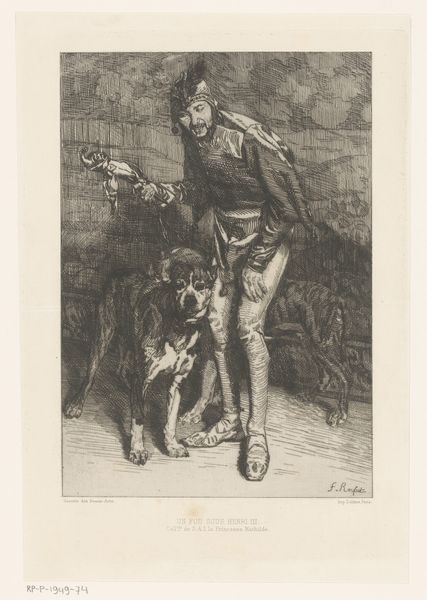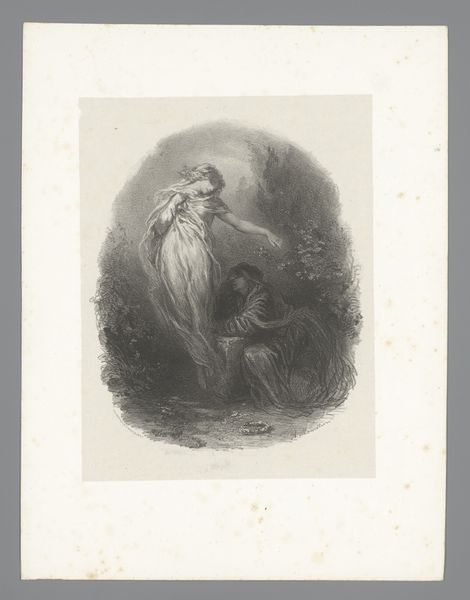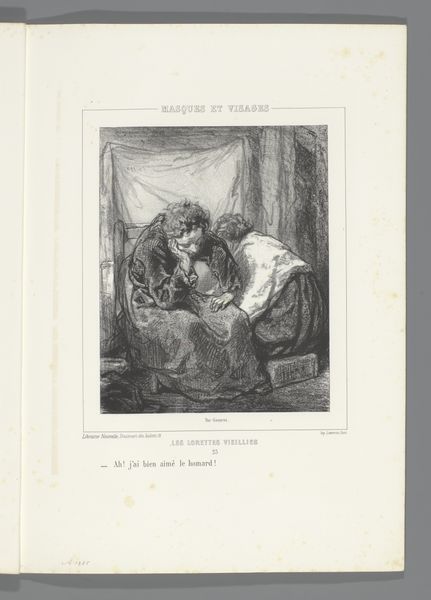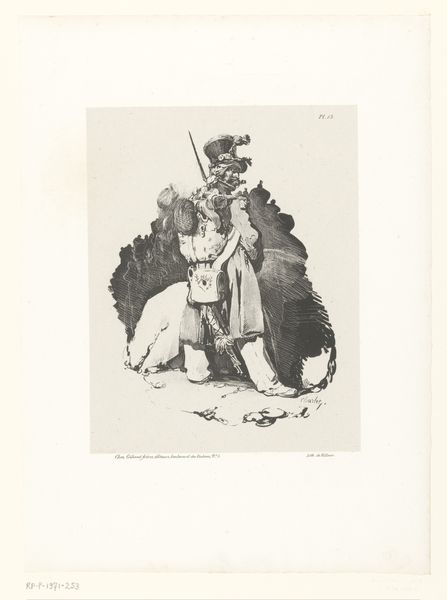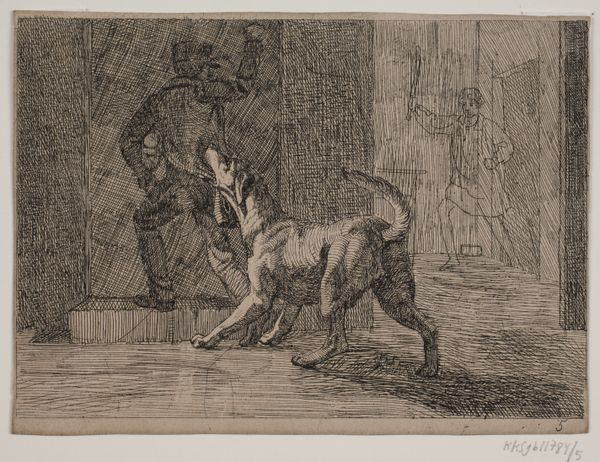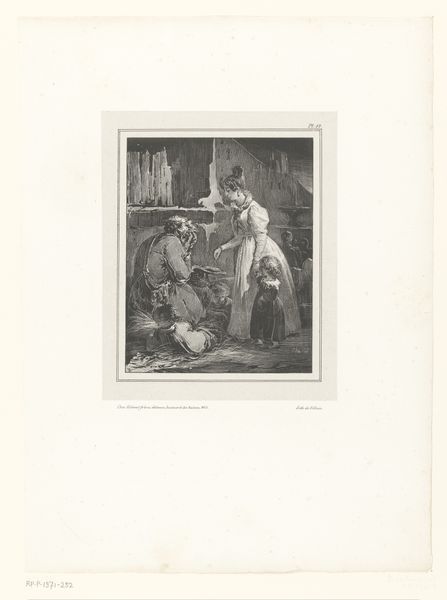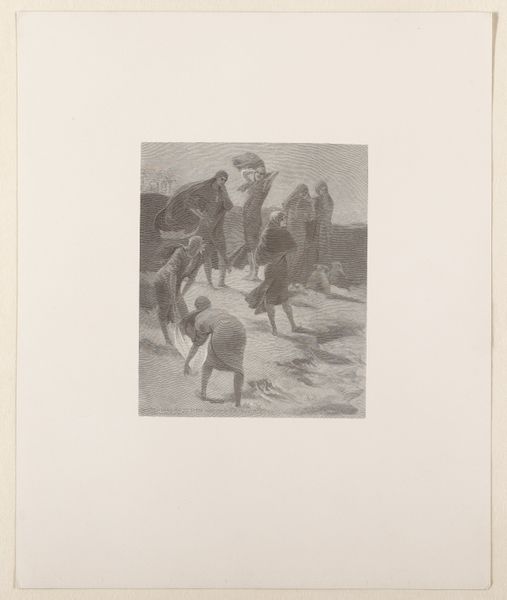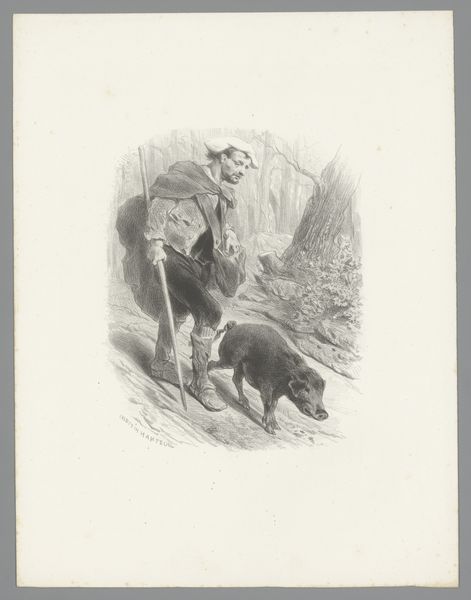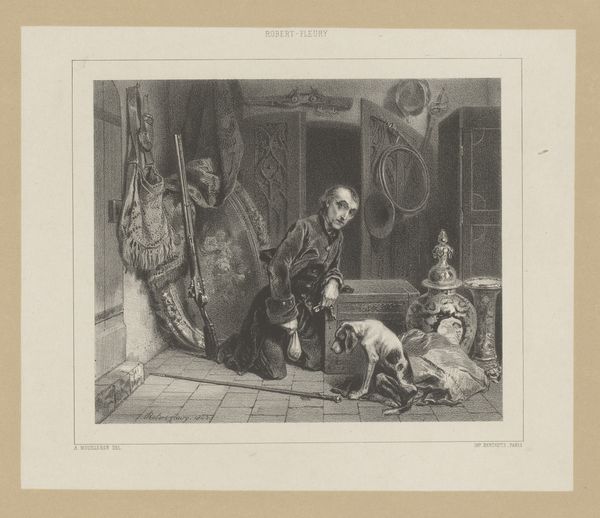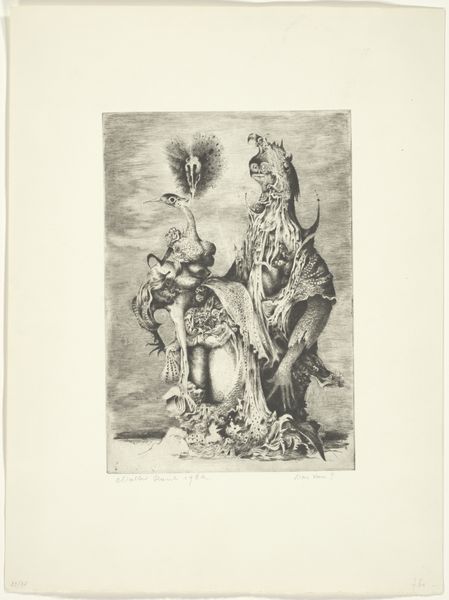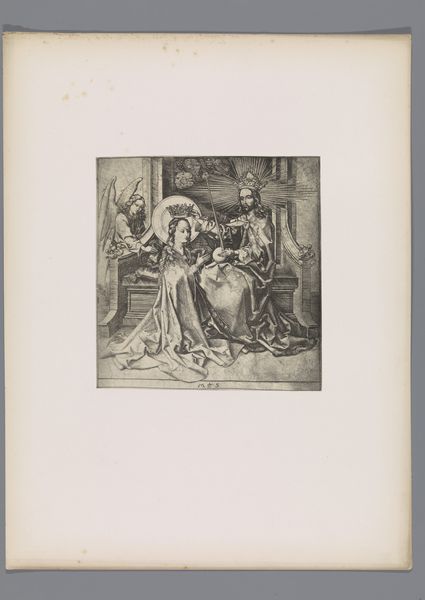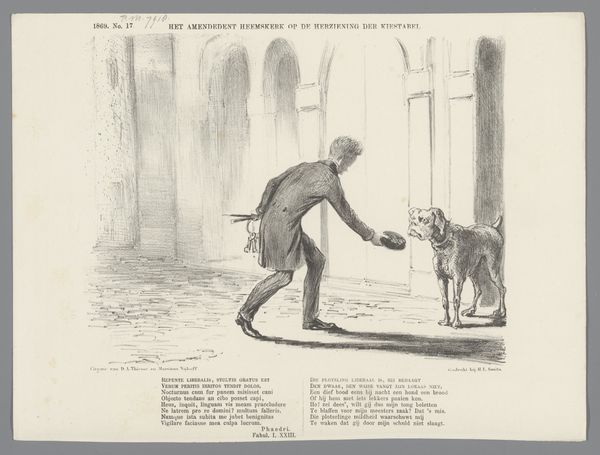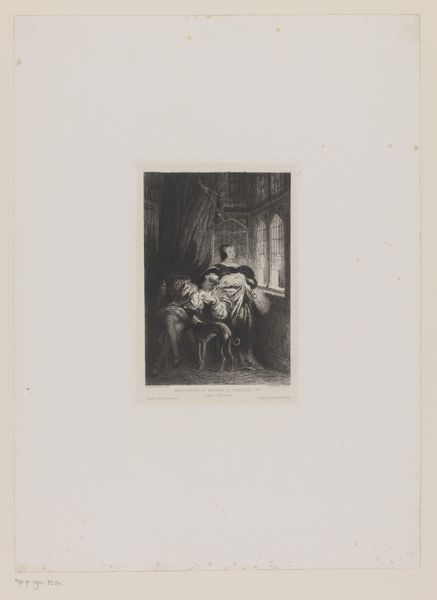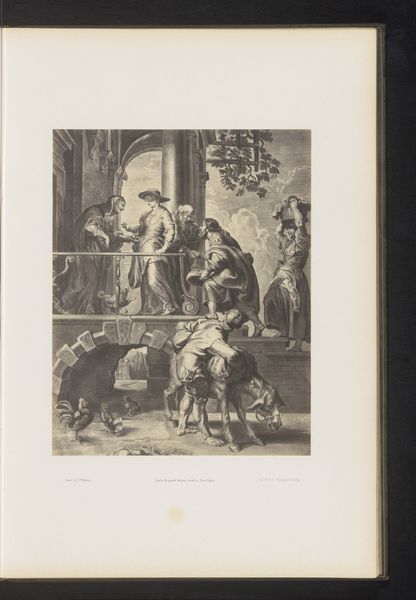
print, engraving
#
portrait
#
16_19th-century
# print
#
figuration
#
line
#
genre-painting
#
history-painting
#
academic-art
#
engraving
#
realism
Dimensions: height 347 mm, width 278 mm
Copyright: Rijks Museum: Open Domain
Eugène Louis Pirodon created this print of a jester of Henry III. The jester, a figure of folly and freedom, holds a mirror to society. He is often depicted with animals, especially dogs. As companions, dogs symbolise loyalty, but when leashed to a jester, they embody the taming of instinct through wit. Consider the medieval Feast of Fools, where societal norms were inverted in riotous celebration, or the Roman Saturnalia. The jester, like the figures in these rituals, embodies a cathartic release, a sanctioned transgression that allows subconscious desires to bubble to the surface. This subversion isn't chaotic, however, as it’s contained within the court. This tension engages the viewer on a deep, subconscious level. The jester’s lineage extends from ancient trickster figures to modern comedians, each incarnation echoing humanity’s need to laugh at itself. This symbol resurfaces, evolves, and takes on new meanings in different historical contexts.
Comments
No comments
Be the first to comment and join the conversation on the ultimate creative platform.
